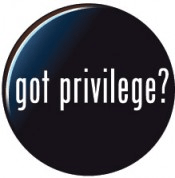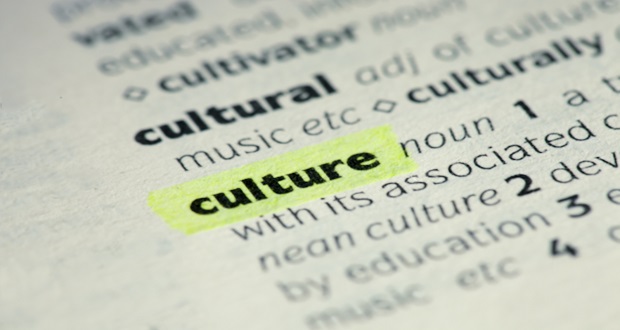 At a recent conference I attended, the topic of white privilege came up. As a diversity practitioner, I had been introduced to the topic of privilege years ago. For me, the topic was an important part of my education. It helped to open my eyes as to the ways in which things were more “fair” for me than for a person of color. The knowledge I acquired in exploring this topic was a critical piece of my self-awareness, and it helped me to develop empathy for people who did not have the advantages I did
At a recent conference I attended, the topic of white privilege came up. As a diversity practitioner, I had been introduced to the topic of privilege years ago. For me, the topic was an important part of my education. It helped to open my eyes as to the ways in which things were more “fair” for me than for a person of color. The knowledge I acquired in exploring this topic was a critical piece of my self-awareness, and it helped me to develop empathy for people who did not have the advantages I did
Maybe the topic was easier for me to digest than many whites because, although I appear white, I am multi-ethnic. People assume I am white, and I recognize it is a privilege for me to be able to “hide out” in the U.S. majority culture. At the same time, people feel free to make comments around me that they probably wouldn’t make if they knew I was also Native American. To me, that is what privilege is about – having opportunities and freedoms that others might not. Being able to experience both sides –being a part of the majority and the minority – is a privilege in and of itself.
I had always seen the topic of privilege in a helpful light. At the conference, I was introduced to a mind-set around white privilege that I had never considered – that instead of helping whites to realize advantages they had simply by being white, the topic of privilege might actually result in some white people, mostly unconsciously, taking on an air of entitlement and/or a feeling of superiority towards others. Or it can lead to patronizing behavior if whites feel sorry or guilty for the plight of those not in the privileged class. Nor had I considered the possibility that some people of color might internalize their lack of “privilege,” which can lead to feelings of disempowerment that have devastating effects on self esteem, choices and life outcomes.
A lot of diversity and inclusion work is about learning new perspectives, and frankly, this one provided me with a big “a-ha!” that I haven’t had in quite awhile. My experience with the topic of privilege helped me to be more self aware of the privileges that I enjoy. I thought it would be as helpful for others as it was for me, regardless of their race or ethnicity, provided they were at a point in their personal development that they were ready for it. I had never heard anyone in the field so passionately opposed to the way we talk about privilege. The other perspective was that it fosters an “us and them” world-view which can be very detrimental.
Sometimes, the language we use and the topics we focus on in this work are not very inclusive. We say we want to give everyone a fair shot, but then we teach about one-up and one-down situations and use language that reinforces those situations rather than remedies them. The way we teach now, we assign privilege to one group – whites. But whites don’t own privilege. We all have some form of privilege, and depending on the situation, we all have had the experience of being the “one up” . . . or the “one down”.
The Inclusion Solution is to evolve the work we do so that all people, regardless of race, ethnicity, gender, sexual orientation, ability, age, or anything else, come from a position of power, because we all do. The key is to recognize where ones personal power lies and how to use it without disempowering someone else.
Only then are we truly being inclusive.



















Susan, I don’t think it is inherently useful or harmful, just more perspectives that provide insight into the complexity of diversity and inclusion. I have been grateful to hear the variety of ideas in the range of mental models people have developed to help us understand our complexity. None of them cover the full range of possibility in the human experience.
My understanding continues to unfold through the sharing of our colleagues and the people I encounter on a daily basis. Thanks for raising another interesting aspect of the conversation.
Thank you, Christine! I agree. There is so much to learn in this space, and I enjoy having my ideas challenged because I just learn more! That’s really what this experience was for me – an opportunity to see another perspective I hadn’t considered. It’s natural to think that something that was good for me would be good for others, and I hadn’t considered the perspective that it might not be. I still think this topic is an important one to teach, and I’ve adjusted my perspective to be more aware of how we teach it.
Excellent insight Christine. Thank you for sharing it in this space so that others may also have the opportunity to reflect and consider how their own attitudes, beliefs and actions are situated in the conversation. I particularly was drawn to your acknowledgement that nobody, white, black, green or purple OWNS privilege, we all have the ability and capability to be extraordinary and privilieged in the gifts that are uniquely ours. Thank you again
Great piece Susan. Right on target!
Intersectional feminism, a theory by Kimberle Crenshaw, discusses how there are many types of privilege, among which white privilege is only one:
– white privilege
– male privilege
– able-bodied privilege
– heterosexual privilege
and probably others.